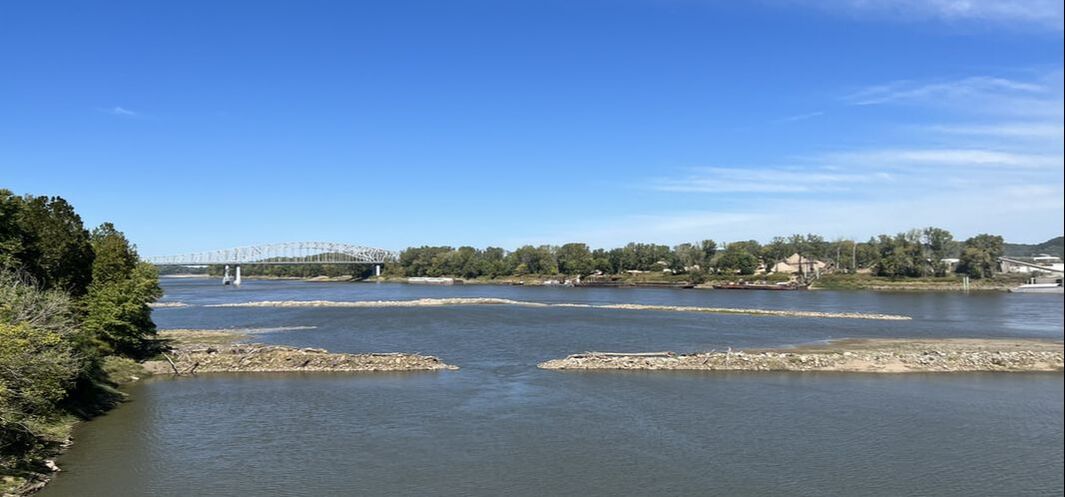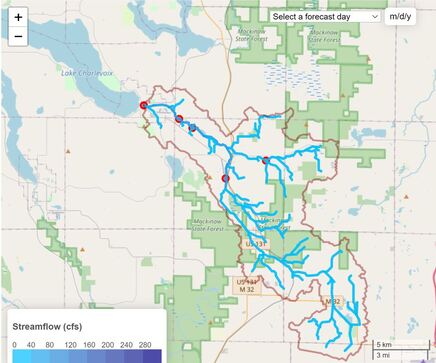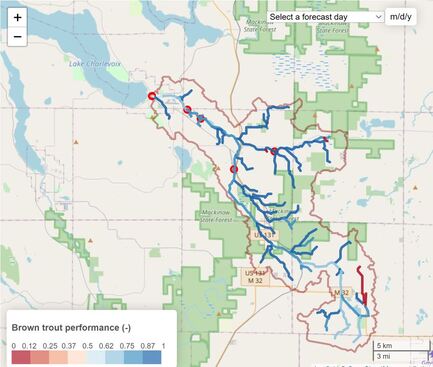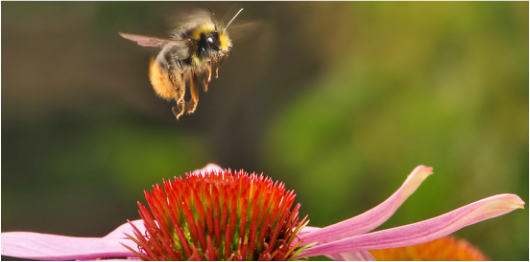Research Approach
|
The Sustainability Science Lab conducts transdisciplinary—interdisciplinary and community engaged—research to improve interactions between human and natural systems in environmental decision making with a particular focus on nature-based solutions, water resources management, conservation policy, and systems modeling.
Our research is problem focused. We believe that managing natural resource systems towards sustainability is 5% about managing nature and 95% about managing people. Thus, our work is driven by interrogating relationships between human and natural systems. Methodologically, we examine driving logics, narratives, and rules that shape interactions between social and ecological functions. Therefore, we investigate empirical human discourses, social practices, laws, policy, and politics of places. Our work is policy-relevant. It encompasses two related themes: (1) The representation and communication of social-ecological systems in decision making and (2) stakeholder participation in conservation policy and planning. Theory is used to inform on-the-ground practice as well as interrogate practices with the intention of accurately assessing the problematic situation so as to improve it. Ultimately, we are interested in theory-informed transferable practices that contribute to transitioning social-ecological systems towards sustainability. Current Projects:
"If we want to empower and re-enchant social scientific research, we need to do three things. First, we must drop all pretence, however indirect, at emulating the success of the natural sciences in producing cumulative and predictive theory, for their approach simply does not work in any of the social sciences (see Flyvbjerg, 2001). Second, we must address problems that matter to groups in the local, national and global communities in which we live, and we must do it in ways that matter; we must focus on issues of context, values and power, as advocated by great social scientists from Aristotle and Machiavelli to Max Weber and Pierre Bourdieu. Finally, we must effectively and dialogically communicate the results of our research to our fellow citizens, the ‘public’, and carefully listen to their feedback." (Flyvbjerg 2011, 25) |
‘Sustainability Science' is an emerging discipline that seeks to understand the interactions within and between global, social, and human systems, the complex mechanisms that lead to the degradation of these systems, and the concomitant risks to human well-being and security. It also seeks to provide the vision and methodology that will lead to the restoration of these systems." (Steinfeld & Mino, 2009: 1) |
Active Project Areas
1. Integrating stakeholder knowledge in water resources planning and policy
US states are responsible for comprehensive planning of water quantity to anticipate future supply and demands. This is a technical and interdisciplinary set of tasks. Because water is held in trust for the use of citizens, people have a right to be informed about decision making that affects their water. Citizens, as water users, have local and regional expertise about water resources that is useful to the informational aspects of planning. This expertise is often untapped. This research designs ways of gathering and incorporating local expertise in water resources planning to address climate adaptations, mitigate flood risk hazards, inform technical tasks, shape communication, and manage conflict.
Projects include:
The research is funded by: The National Science Foundation, the US Army Corps of Engineers, Montana Department of Natural Resources and Conservation, Humanities Montana Planning Grant, Greater Yellowstone River Conservation District Council, Missouri Department of Natural Resources, The Nature Conservancy, National Institute of Food and Agriculture, and US Department of Agriculture- Agricultural Research Service.
Conducted in collaboration with faculty from Montana State University-Billings, Montana State University-Bozeman, Eastern Washington University, Rocky Mountain College, Texas A&M University, Tarleton State University, University at Buffalo, and Indiana University; Friends of the Boyne River, Trout Unlimited, Boyne USA, Boyne City, Yellowstone Public Radio, the Western Heritage Center of Billings, the Rocky Mountain Rough Writers, CDM-Smith, The Nature Conservancy, and the people of Missouri, the Boyne River (MI), and the Yellowstone River (WY, MT, ND)
Related Publications:
US states are responsible for comprehensive planning of water quantity to anticipate future supply and demands. This is a technical and interdisciplinary set of tasks. Because water is held in trust for the use of citizens, people have a right to be informed about decision making that affects their water. Citizens, as water users, have local and regional expertise about water resources that is useful to the informational aspects of planning. This expertise is often untapped. This research designs ways of gathering and incorporating local expertise in water resources planning to address climate adaptations, mitigate flood risk hazards, inform technical tasks, shape communication, and manage conflict.
Projects include:
- MDNR "Piloting floodplain resiliency conversations and an engagement process in repetitive-loss communities along the Missouri River"
- USDA "Future pathways to flood mitigation: Engaging landowner partnerships in flood solutions in the Lower Mississippi River Basin"
- USACE "Yellowstone River Cultural Inventory Update 2018 with Emphasis on Drought and Flood Preparedness"
- NSF "ABI Innovation: A computational framework for integrating citizen science data into an aquatic ecosystem model for enhanced sustainable management" Streamflow forecast & Water temp forecast
- MDNR "Missouri Integrated Water Study-Stakeholder Engagement Design for the 2017 Missouri State Water Plan"
- MDNRC "Montana State Water Plan 2015: Yellowstone River Basin Planning Issue Scoping"
- USACE "The Yellowstone River Cultural Inventory"
- MTHC "Journals of the Yellowstone River: A Radio Catalog"
The research is funded by: The National Science Foundation, the US Army Corps of Engineers, Montana Department of Natural Resources and Conservation, Humanities Montana Planning Grant, Greater Yellowstone River Conservation District Council, Missouri Department of Natural Resources, The Nature Conservancy, National Institute of Food and Agriculture, and US Department of Agriculture- Agricultural Research Service.
Conducted in collaboration with faculty from Montana State University-Billings, Montana State University-Bozeman, Eastern Washington University, Rocky Mountain College, Texas A&M University, Tarleton State University, University at Buffalo, and Indiana University; Friends of the Boyne River, Trout Unlimited, Boyne USA, Boyne City, Yellowstone Public Radio, the Western Heritage Center of Billings, the Rocky Mountain Rough Writers, CDM-Smith, The Nature Conservancy, and the people of Missouri, the Boyne River (MI), and the Yellowstone River (WY, MT, ND)
Related Publications:
- Hall, DM, Avellaneda, PM, Ficklin, D, Knouft, J, Lowry, CS. 2024. Citizen silence: Missed opportunities in citizen science. BioScience. DOI: 10.1093/biosci/biae020
- Gilbertz, SJ, Hall, DM. 2022. Bringing Sustainability to the Ground Level: Competing Demands in the Yellowstone River Valley. Foreword by Hoffman, Andrew J. New York: Business Expert Press. ISBN 9781637421482
- Hall, DM, Gilbertz, SJ, Anderson, MA, Avellaneda, P, Ficklin, D, Knouft, J., Lowry CS, 2021. Mechanisms for engaging social systems in freshwater science research. Freshwater Science, 40(1).
- *Emerson MR, Hall DM, Gilbertz SJ. 2021. Pipeline pipedreams: Oil spills, pipeline accidents, and the local truths embedding fossil fuels in the Yellowstone River valley, United States. Energy Research & Social Science
- Gilbertz, S, Hall, DM, Ward, L, Anderson, M. 2019. Science on the sideline: Pragmatism and the Yellowstone River Basin Advisory Council. Water Resources Management.33(4): 1411–1424.
- Lowery, CS, Fienen, MN, Hall, DM. Stepenuck, K, 2019. Growing Pains of Crowdsourced Stream Stage Monitoring using Mobile Phones: The Development of CrowdHydrology. Frontiers in Earth Science.
- Anderson, M., Gilbertz S., Ward, L., McEvoy, J., Hall, D.M. 2018. Prior appropriation and water planning reform in Montana’s Yellowstone River Basin: Path dependency or boundary object? Journal of Environmental Policy & Planning, 20(2):198–213.
- Horton, C.C., Hall, D.M., Gilbertz, S.J., Peterson, T.R. 2017. Voice as an entry to agriculturalists’ conservationist identity: A cultural inventory of the Yellowstone River. Environmental Communication: Journal of Nature and Culture, 5, 609–623.
- Ward, L., Gilbertz S., Anderson, M., Hall, D.M., McEvoy, J. 2017. Public stealth and boundary objects: Coping with integrated water resource management and the post-political condition in Montana's portion of the Yellowstone River Watershed. Geoforum, 83:1–13.
- Hall, D.M., Gilbertz, S.J., Anderson, M., Ward, L. 2016. Beyond "buy-in": Designing citizen participation in water planning as research. Journal of Cleaner Production, 133:725–734.
- Anderson, M., Hall, D.M., McEvoy, J., Gilbertz., S.J., Ward, L., Rode, A. 2016. Defending dissensus: Participatory governance and the politics of water measurement in Montana’s Yellowstone River Basin. Environmental Politics, 25(6):991–1012.
- Gilbertz, S.G., Hall, D.M., Ward, L. 2013. Yellowstone River Basin Advisory Council: Membership & Report of 2013 Public Scoping Activities. Montana Department of Natural Resources and Conservation.
- Hall, D.M., Gilbertz, S., Horton, C., Peterson, T.R. 2012. Culture as a means to contextualize policy. Journal of Environmental Studies and Sciences, 2(3), 222−233.
- Gilbertz, S.J., Horton, C.C., Hall, D.M. 2007. Yellowstone River Cultural Inventory. United States Corps of Engineers and the Greater Yellowstone River Conservation District Council. 787 pages. Available at: http://www.yellowstonerivercouncil.org/dev/resources.php
2. Developing meaningful models of social-ecological systems for decision making
To develop sustainable policies, environmental planning groups must share a common set of assumptions about the complex systems in which they operate and manage. This project explores how social-ecological systems can be meaningfully represented to improve decision making. Through engaging stakeholders in conceptual modeling and results of computational models, we are improving the salience of scientific models to communities of shared resource users while simultaneously improving the abilities of scientists to communicate the usefulness of their products.
Projects include:
This project is funded by: The National Science Foundation, U.S. Army Corps of Engineers, and the National Park Service (U.S.)
Conducted in collaboration with: the U.S. Army Corps of Engineers Engineer Research and Development Center's Environmental Lab and faculty at the University of Southampton, Indiana University, Saint Louis University, Texas A&M University, Texas State University, University of Alabama, others
Related Publications:
To develop sustainable policies, environmental planning groups must share a common set of assumptions about the complex systems in which they operate and manage. This project explores how social-ecological systems can be meaningfully represented to improve decision making. Through engaging stakeholders in conceptual modeling and results of computational models, we are improving the salience of scientific models to communities of shared resource users while simultaneously improving the abilities of scientists to communicate the usefulness of their products.
Projects include:
- NSF Hydrologic Sciences “Collaborative research: Exploring the influence of agricultural tile drainage on streamflow and water temperature in the Midwestern US using a stakeholder-driven approach"
- NSF Decision Risk and Management Sciences “Engaging communities to discover environmentally and socially optimal waste management decisions”
- NSF "ABI Innovation: A computational framework for integrating citizen science data into an aquatic ecosystem model for enhanced sustainable management" Streamflow forecast & Water temp forecast
- USACE “Integrating Climate Data with Hydrologic and Ecological Niche Models to Predict Impacts of Climate Change for Threatened and Endangered Species in the Mobile River Basin”
- USACE “Communicating social-ecological systems models”
- NPS “Modeling Coupled Human and Ecological Systems for the National Park Service Park Monitoring Program”
This project is funded by: The National Science Foundation, U.S. Army Corps of Engineers, and the National Park Service (U.S.)
Conducted in collaboration with: the U.S. Army Corps of Engineers Engineer Research and Development Center's Environmental Lab and faculty at the University of Southampton, Indiana University, Saint Louis University, Texas A&M University, Texas State University, University of Alabama, others
Related Publications:
- Hall, DM, Avellaneda, PM, Ficklin, D, Knouft, J, Lowry, CS. 2024. How to close the loop with citizen scientists to advance meaningful science. Sustainability Science
- Hall, DM, Gilbertz, SJ, Anderson, MA, Avellaneda, P, Ficklin, D, Knouft, J., Lowry CS, 2021. Mechanisms for engaging social systems in freshwater science research. Freshwater Science, 40(1).
- Avellaneda, PM, Ficklin, D, Lowery, CS, Knouft, J, Hall, DM. 2020. Improving hydrological models with the assimilation of citizen science data. Water Resources Research, 10.1029/2019WR026325.
- Hall, DM, Lazarus, ED., Thompson, JL., 2019. Mediated modeling and participatory modeling. In Fath, B. (Ed.) Earth Systems and Environmental Sciences. Encyclopedia of Ecology 2nd Ed. Elsevier. 129–135.
- Hall, D.M., Feldpausch-Parker, A., Peterson T.R., Stephens J., Wilson E.J. 2017. Social-ecological system resonance: a framework for brokering sustainable solutions. Sustainability Science, 12(3): 381-392.
- Hall, D.M., Swannack, T.M., Lazarus, E.D., Peterson, M.J., Gilbertz, S.J., Horton, C.C., Peterson, T.R., 2015. Integrating social power and political influence into models of social-ecological systems. European Journal of Sustainable Development, 4(2), 61–76.
- Hall, D.M., Lazarus, E.D., Swannack, T.S. 2014. Strategies for communicating systems models. Environmental Modelling & Software, 5, 70–76.
- Hall, D.M., Gilbertz, S., Horton, C., Peterson, T.R. 2013. Integrating divergent representations of place into decision contexts. In: Stewart, W.P., D. R. Williams, and L. E. Kruger (Eds.). Place-based Conservation: Perspectives from the social sciences. (pp. 121–136). Dordrecht: Springer Press.

Sustainability of Freshwater Resources A primary goal of our research is to integrate field collected data with hydrologic modeling techniques to predict the potential impacts of environmental change on water resources and the distribution and diversity of aquatic organisms, from microbes to vertebrates. Our work also focuses on investigating the potential of climate adaptation strategies to produce increase freshwater system resilience in the coming decades.
3. Engaging communities in insect pollinator conservation
The project couples social science field research, citizen engagement, public policy research, and urban ecology long-term field sampling of wild bees to examine relationships between pollinator health and urban land-use decision making in St. Louis and other cities. Findings from this project will inform the development (and communication of) insect pollinator health policies and provide an empirical approach for evaluating habitat conservation programs.
Projects include:
This work is funded by: The Missouri Department of Conservation, David H. Smith Conservation Research Program, Society for Conservation Biology, Saint Louis University's Presidential Research Fund, the Beaumont Faculty Development, the Center for Sustainability's Sustainability Innovation Fund, and Missouri Louis Stokes Alliance for Minority Participation
This work is conducted in collaboration with: The Saint Louis Zoo, the WildCare Institute Center for Native Pollinator Conservation, Missouri Department of Conservation, Saint Louis University Department of Biology, The Billiken Bee Lab, PureAir Seeds, Gateway Greening, Sustainable Backyard Tour, The Greenhouse Venture, Brightside St. Louis, others
Related Publications:
The project couples social science field research, citizen engagement, public policy research, and urban ecology long-term field sampling of wild bees to examine relationships between pollinator health and urban land-use decision making in St. Louis and other cities. Findings from this project will inform the development (and communication of) insect pollinator health policies and provide an empirical approach for evaluating habitat conservation programs.
Projects include:
- “Bees in US States' wildlife action plans 2005–2014, 2015–2024”
- "Insect pollinator conservation policy innovations at subnational levels"
- "Urban wildlife conservation: Partnering with urban residential homeowners for habitat conservation from the wild bee’s perspective"
- "The Social and Cultural Drivers of Pollinator Health in Detroit"
- "Social and Ecological Drivers of Pollinator Health: Interdisciplinary Research Strategies for Addressing the Pollinator Conservation Crisis"
This work is funded by: The Missouri Department of Conservation, David H. Smith Conservation Research Program, Society for Conservation Biology, Saint Louis University's Presidential Research Fund, the Beaumont Faculty Development, the Center for Sustainability's Sustainability Innovation Fund, and Missouri Louis Stokes Alliance for Minority Participation
This work is conducted in collaboration with: The Saint Louis Zoo, the WildCare Institute Center for Native Pollinator Conservation, Missouri Department of Conservation, Saint Louis University Department of Biology, The Billiken Bee Lab, PureAir Seeds, Gateway Greening, Sustainable Backyard Tour, The Greenhouse Venture, Brightside St. Louis, others
Related Publications:
- Harris, KL, Hall, DM, Finke, DL. 2023. Who cares about monarch butterflies? Comparing US State Wildlife Action Plans 2015–2025. Conservation Letters. DOI: 10.1111/conl.12976.
- *Burr, AK, Hall, DM, *Schaeg, N. 2021. Wildness and wild spaces in residential yards: Changing neighborhood norms to support pollinator populations. Sustainability, 13(22):12861, https://doi.org/10.3390/su132212861
- Hall, DM, Martins, DJ. 2020. Human dimensions of insect pollinator conservation. Current Opinion in Insect Science, 38, 10.1016/j.cois.2020.04.001
- Hall, DM, *Steiner, R. 2019. Insect pollinator conservation policy innovations at subnational levels: Lessons for lawmakers. Environmental Science & Policy, 93:118–128.
- Burr, A., Schaeg, N., Hall, D.M. 2018. Assessing Residential Front Yards Using Google Street View and Geospatial Video: A Virtual Survey Approach for Urban Pollinator Conservation. Applied Geography, 92: 12-20.
- Burr, AK, Hall, DM, Schaeg, N, 2018. The perfect lawn: exploring neighborhood socio-cultural drivers for insect pollinator habitat. Urban Ecosystems, 21(6):1123–1137.
- Hall, D.M., Camilo, G.D., Tonietto, R.K., Ollerton, J., Ahrné, K., Arduser, M., Ascher, J.S., Baldock, K.C.R., Fowler, R.E., Frankie, G.W., Goulson, D., Gunnarsson, B., Hanley, M.E., Jackson, J.I., Langellotto, G., Lowenstein, D., Minor, E.S., Philpott, S.M., Potts, S.G., Sirohi, M.H., Spevak, E.M., Stone, G., Threlfall, C., 2017. The city as a refuge for insect pollinators. Conservation Biology. 31(1):24–29. DOI: 10.1111/cobi.12840




